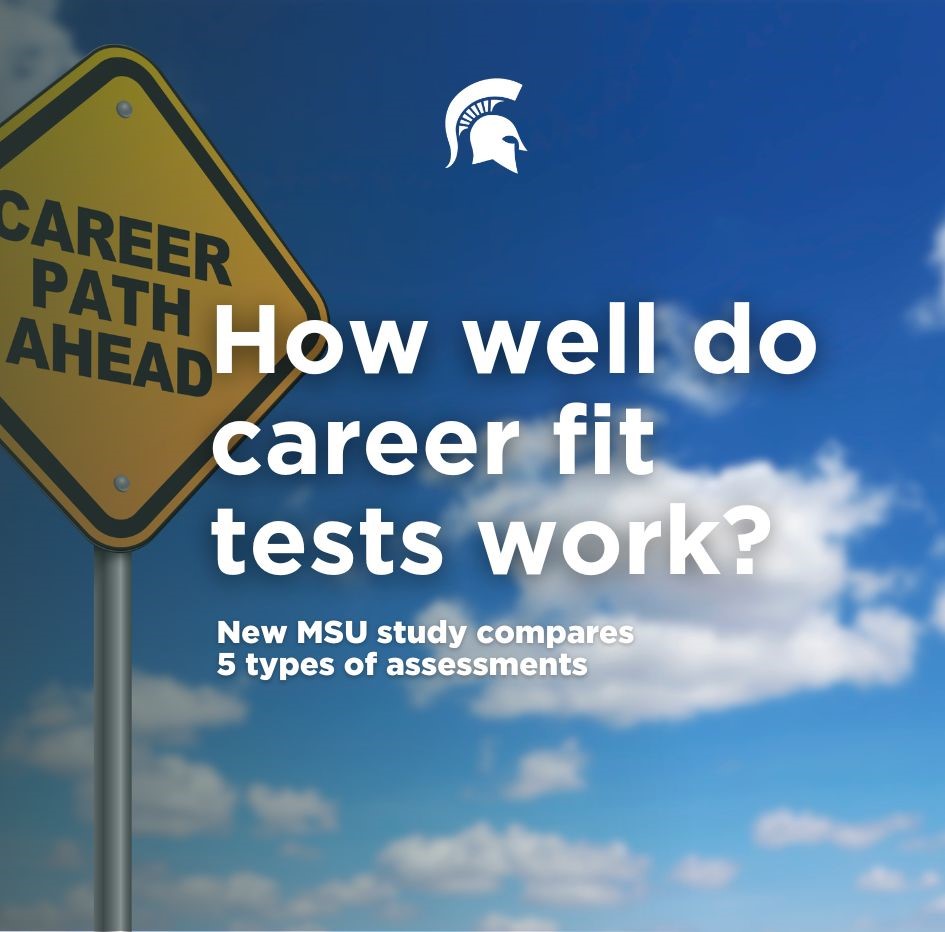How well do career fit tests work? New MSU study compares 5 types of assessments
September 16, 2024 - Shelly DeJong
 Career fit assessments are a common tool used to help people know which jobs they are well suited for. But how well do they work? A new study from Michigan State University evaluated five types of assessments and found that not every assessment was equal in its predictions.
Career fit assessments are a common tool used to help people know which jobs they are well suited for. But how well do they work? A new study from Michigan State University evaluated five types of assessments and found that not every assessment was equal in its predictions.
The study, published in the Journal of Applied Psychology, is the most comprehensive investigation of career fit tests that currently exists. The researchers evaluated five assessments that measure fit between people and jobs based on interests, values, personality, skills or knowledge.
The study found that individuals are most likely to succeed in jobs where they show high fit across multiple domains. But knowledge fit and skill fit were the strongest predictors of income. For job satisfaction, interest fit was the strongest predictor. In contrast, value fit and personality fit tended to be weaker predictors of career outcomes, although they still contributed some unique information.
 “Measuring fit between people and jobs is an essential function in today’s rapidly changing labor market,” said Kevin Hoff, co-author of the study and assistant professor in MSU’s Department of Psychology. “Our results demonstrate that these assessments can be improved by incorporating a whole-person approach that considers not only what a person likes to do, but also what they excel at and what they value.”
“Measuring fit between people and jobs is an essential function in today’s rapidly changing labor market,” said Kevin Hoff, co-author of the study and assistant professor in MSU’s Department of Psychology. “Our results demonstrate that these assessments can be improved by incorporating a whole-person approach that considers not only what a person likes to do, but also what they excel at and what they value.”
To conduct this study, the researchers developed measures to map each variable to career characteristics from the Occupational Information Network, or O*NET, the database maintained by the U.S. Department of Labor that collects standardized information on over 900 occupations. To support future applications, the researchers made their assessment measures publicly available and provided guidance about how the measures can be used in practice.
The researchers hope that these findings can improve the use of fit assessments for career exploration and job search practices, especially in settings where time and resources are limited.
“In career guidance settings alone, millions of people take fit assessments each month to explore how their unique personal attributes relate to different career paths. Our results can inform decisions about which assessments to use in settings where time and resources are limited,” said Hoff. “We’re excited to see how our findings can improve the use of fit assessments in job search practices.”
The study was also co-authored by Zihan Liu, an assistant professor at the University of Illinois Springfield.

